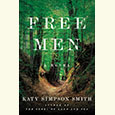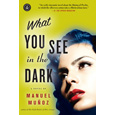Unhappy Endings
How a big-time swindler turned a young Knoxville woman’s life upside down
As so many things in New York do, it all started innocently enough with cocktails among friends. It was February 2016, and Vanity Fair photo editor Rachel DeLoache Williams, a Knoxville native, joined some buddies for drinks at a bar called Happy Ending — an ironic name, as it turned out. At that congenial gathering, Williams met the young woman who would ultimately wreak havoc with her life for the next two years.

Anna Delvey, as she called herself, had 40,000 Instagram followers and was friends with some of Williams’ acquaintances, as well as a handful of high-powered friends of friends. They were both twentysomethings in New York with their eyes on the horizon, and Delvey had a mesmerizing way about her, a certain bewitching attraction that Williams found hard to explain.
Delvey claimed to come from a rich German family and was able to bankroll the kinds of extravagances that seemed to confirm her story — luxuries a young professional at Vanity Fair couldn’t possibly afford: lavish beauty treatments, high-dollar personal training sessions, and expensive drinks and dinners. “The world was charmed when she was around — the normal rules didn’t seem to apply,” Williams writes. “Her lifestyle was full of convenience, and its easy materialism was seductive.”
Every now and then, Delvey would allow Williams to pick up the check for something, but it was mostly the flashy, alluring Delvey who covered the tab. Early in their friendship, the only signs that Williams had landed squarely in the fold of a pathological criminal were Delvey’s own insecurities, which Williams rationalized at the time. “As for her concern that people might question her legitimacy, Anna was an oddball twenty-six-year-old — half-fashion, half-foreign (and I mean that intrinsically, as in: Anna had a quality that marked her as other, as outlandish — as strange),” Williams writes. “I completely understood why people would have doubts. She was like a fashion-girl/finance-bro hybrid trapped in a Botticelli body. It was confusing, but the effect worked in her favor.”
When Delvey offered to finance a trip for herself, Williams, and two other people to Marrakesh, Morocco, Williams didn’t think much about it. But the arrangements — and the costs — somehow kept falling to Williams, who went on piling up credit card charges, secure in her friend’s promise to promptly repay her. As has been covered widely in the media, Delvey ultimately stuck Williams with more than $70,000 in expenses, including the bill for a $7,500-a-night private riad that came with a personal butler.
 In the end, Delvey (real name Anna Sorokin) was indicted and tried for stealing some $275,000 through a number of different scams and trying to rip off banks and others for millions more. It’s astonishing that someone so young could figure out how to navigate the intricacies of such high-dollar white-collar crime. Delvey financed most of her day-to-day luxuries with check kiting, but some of her fraud was much more elaborate. She was also accused of falsifying international bank documents and had overseas accounts with a total balance of approximately 60 million euros. In April of this year, she was found guilty on 8 counts of larceny and theft and will serve between 4 and 12 years for her crimes.
In the end, Delvey (real name Anna Sorokin) was indicted and tried for stealing some $275,000 through a number of different scams and trying to rip off banks and others for millions more. It’s astonishing that someone so young could figure out how to navigate the intricacies of such high-dollar white-collar crime. Delvey financed most of her day-to-day luxuries with check kiting, but some of her fraud was much more elaborate. She was also accused of falsifying international bank documents and had overseas accounts with a total balance of approximately 60 million euros. In April of this year, she was found guilty on 8 counts of larceny and theft and will serve between 4 and 12 years for her crimes.
It’s clear in reading Williams’ memoir that she herself is still trying to understand all of this, trying to wrap her head around how she could have been so thoroughly duped. How does an otherwise intelligent professional on the rise in New York come so close to financial devastation and the potential wrath of an employer and media giant as formidable as Vanity Fair? (One of the cards on which Williams covered the Marrakesh riad — she thought it was just a temporary block — was her corporate Amex.)
In fact, the narrative is so thick with this internal struggle — or at least with Williams’ ongoing process of trying to fathom how her judgment failed her — that the reader can’t help but feel the pain of such a raw wound. It probably doesn’t help Williams work through the still-fresh betrayal to realize that she knew all along that Delvey wasn’t a very nice person. “She was fast with her appraisals,” Williams recalls, “deciding within minutes whether a person had anything to offer — entertainment value, interesting conversation, and so on.”
Even so, she writes, “I didn’t see Anna coming. She slipped through my filters. You read about those characters in books, you see them in movies, but you don’t expect to meet one in real life. You don’t think it’s going to happen to you.”

Liz Garrigan is the former editor of Nashville Scene and Washington City Paper. She lives in Bangkok, Thailand.


